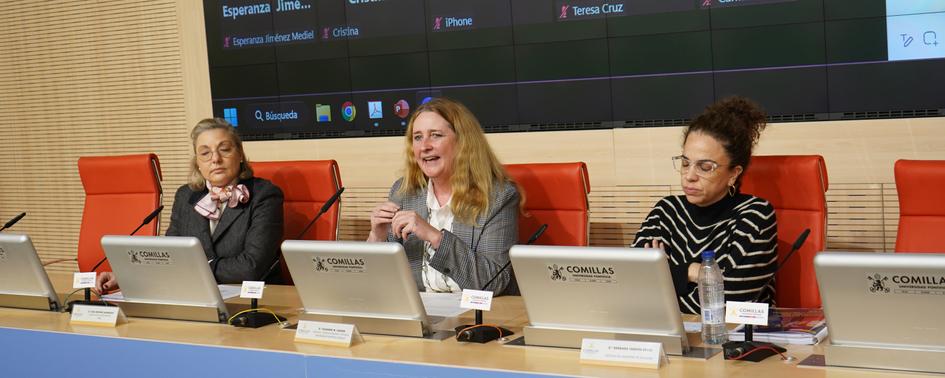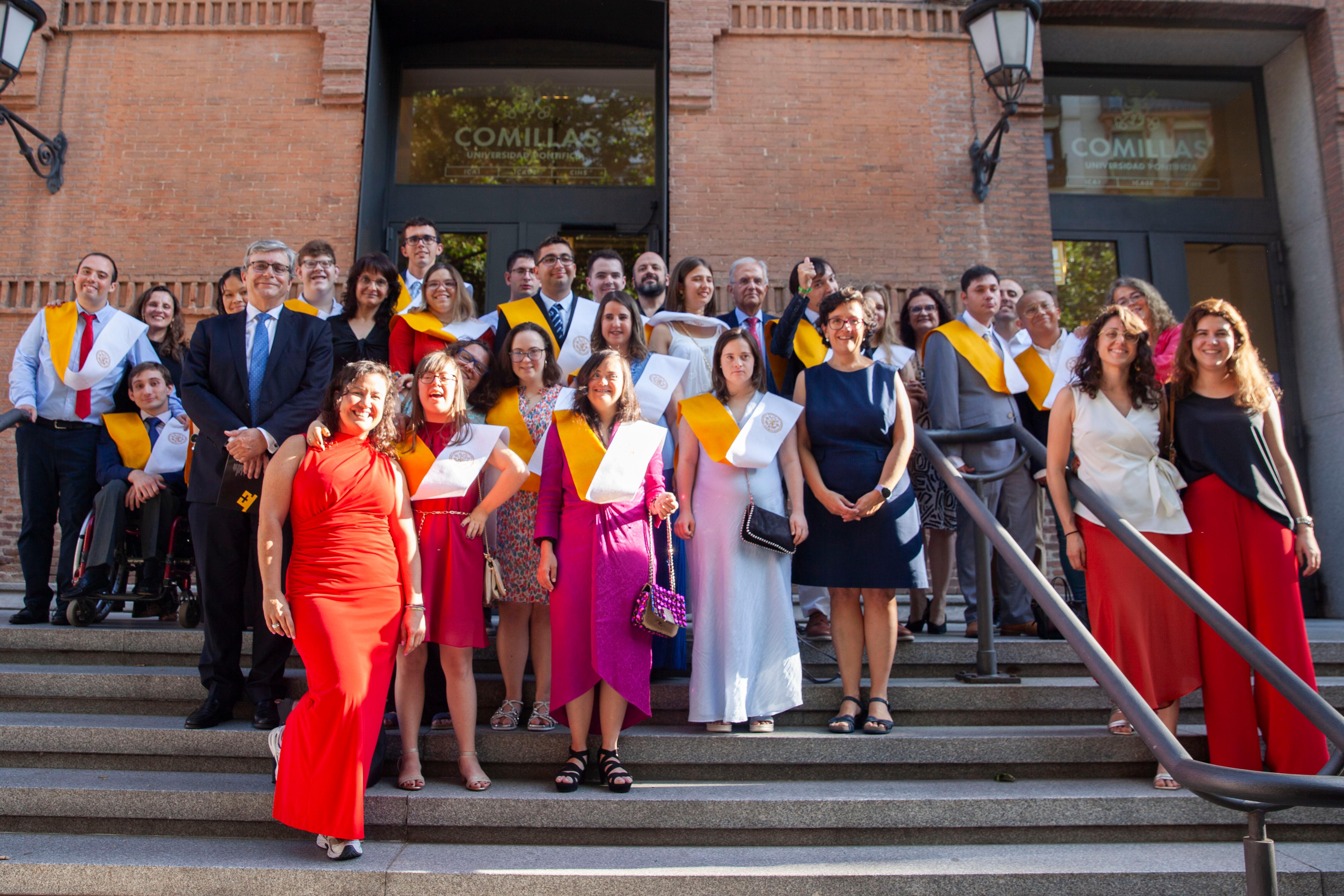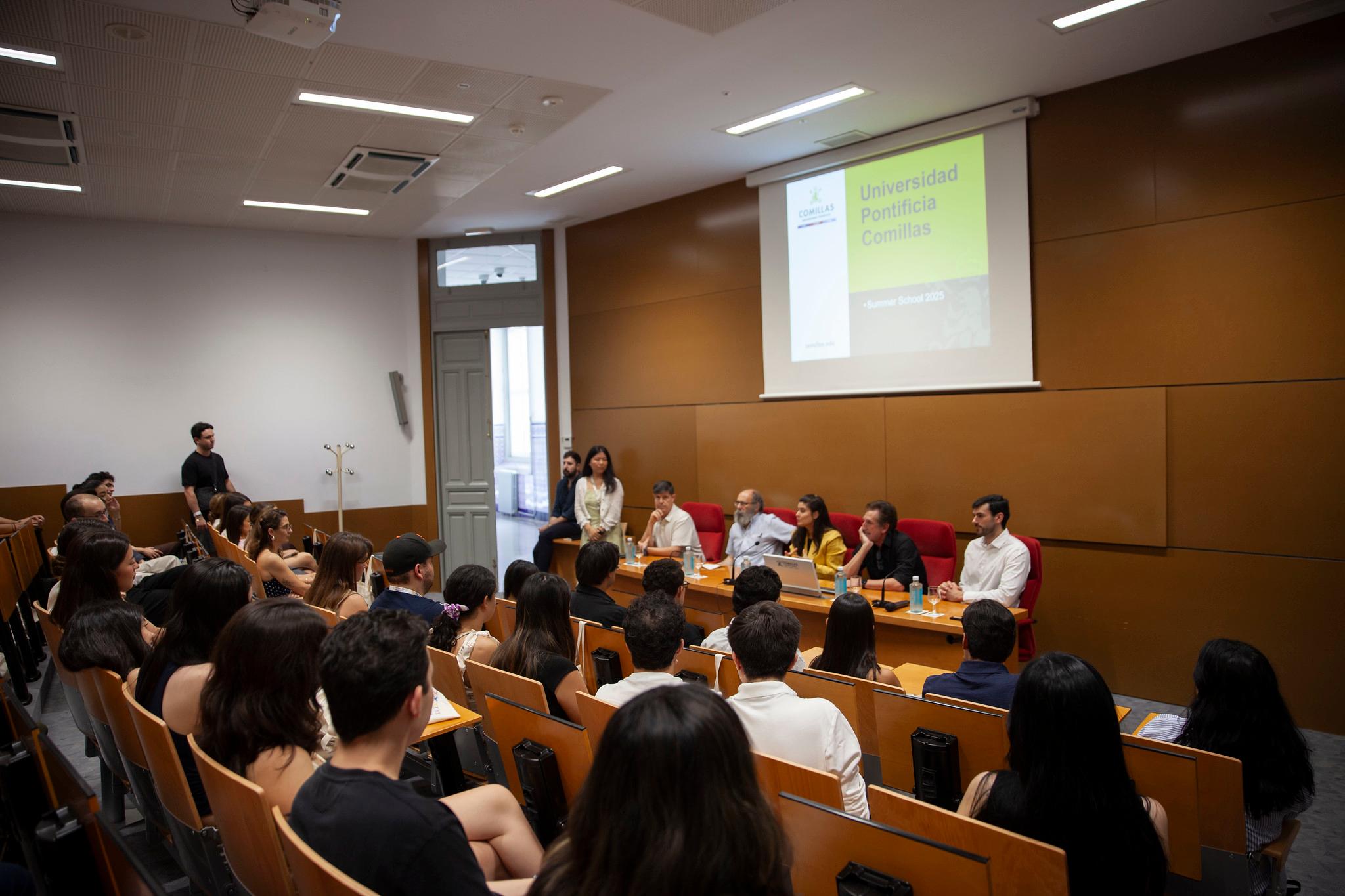Comillas highlights the importance of social workers
Conference “Reflections and experiences in favour of equality from an intersectional approach”

20 February 2023
Professional experts in social intervention took part on the IV Scientific Seminar on Socio-Educational Intervention organized by the Faculty of Humanities and Social Sciences (Comillas CIHS) and the UNED under the title "Reflections and experiences in favour of equality from an intersectional approach". The conference served to analyse and help to understand how the different conditions of a person can lead them to suffer multiple discriminations, which prevent them from enjoying an environment of well-being or quality of life conditions.
The specialists gathered at Comillas, from the fields of education and research, and from various NGOs, agreed that structural forms of inequality continue to exist and hinder the achievement of equality and the 2030 Agenda for Sustainable Development established by the United Nations, even more after the COVID-19 pandemic, especially impeding the well-being and development of women and girls.
That is the reason why the speakers highlighted the importance of intersectionality, defined as the interaction between two or more social factors that define a person. In other words, gender, ethnic, race, geographic location or age do not affect a person on their own, but combine to create diverse inequalities (or advantages).
It is a term that has been used for more than 30 years and provides a better understanding of the inequalities and discrimination suffered by women and diverse populations. The speakers agreed that "intersectionality allows us to reflect on the processes by which social inequalities are created and spread, which place many women in situations of marginalisation and social exclusion".
However, in the application of intersectionality, the presence of social workers, key professionals for society, and dealing with risk situations on the front becomes crucial. "Their holistic understanding of the new scenarios brought by economic, climatic, social and political changes, and their intersectional approach, are of vital importance for understanding the new environments of exclusion and the changes that we must address in order to leave no one behind," says Eva Rubio, lecturer of Sociology and Social Work at Comillas CIHS and coordinator of the conference.
Bárbara Tardón, advisor to the Ministry of Equality, who took part in the inauguration of the conference, said that "intersectionality is here to stay, and it has to stay”. She added that "the states have the obligation to accompany, assist and compensate victims and prevent any form of inequality and discrimination," after recalling that her ministry is the one that has legislated the most and has developed the most public policies, all of them including intersectionality.
For Susanne Margret Cadera, dean of Comillas CIHS, the conference "is very relevant for social action professionals, and in particular for the social work professionals we are training, who must be able to deal with increasingly complex realities, understanding that relations of domination and inequality cannot be taken in isolation, but from the effects of their natural correlation".
For her part, Ana Mohíno, dean of the Faculty of Law at UNED, highlighted "the promotion of knowledge transfer and collaboration between institutions," and that the university "must educate professionals that society needs".
Related news

The aim of this plan is to facilitate the patient's transition to closer care from primary care after overcoming the disease, without losing the link to specialised hospital services.

Nineteen students from the EDUCADEMOS and TECNODEMOS programmes culminate their training in a ceremony that reinforces the commitment to educational inclusion and professional development

The inauguration of these courses opens a global space for learning, cultural exchange and academic excellence
